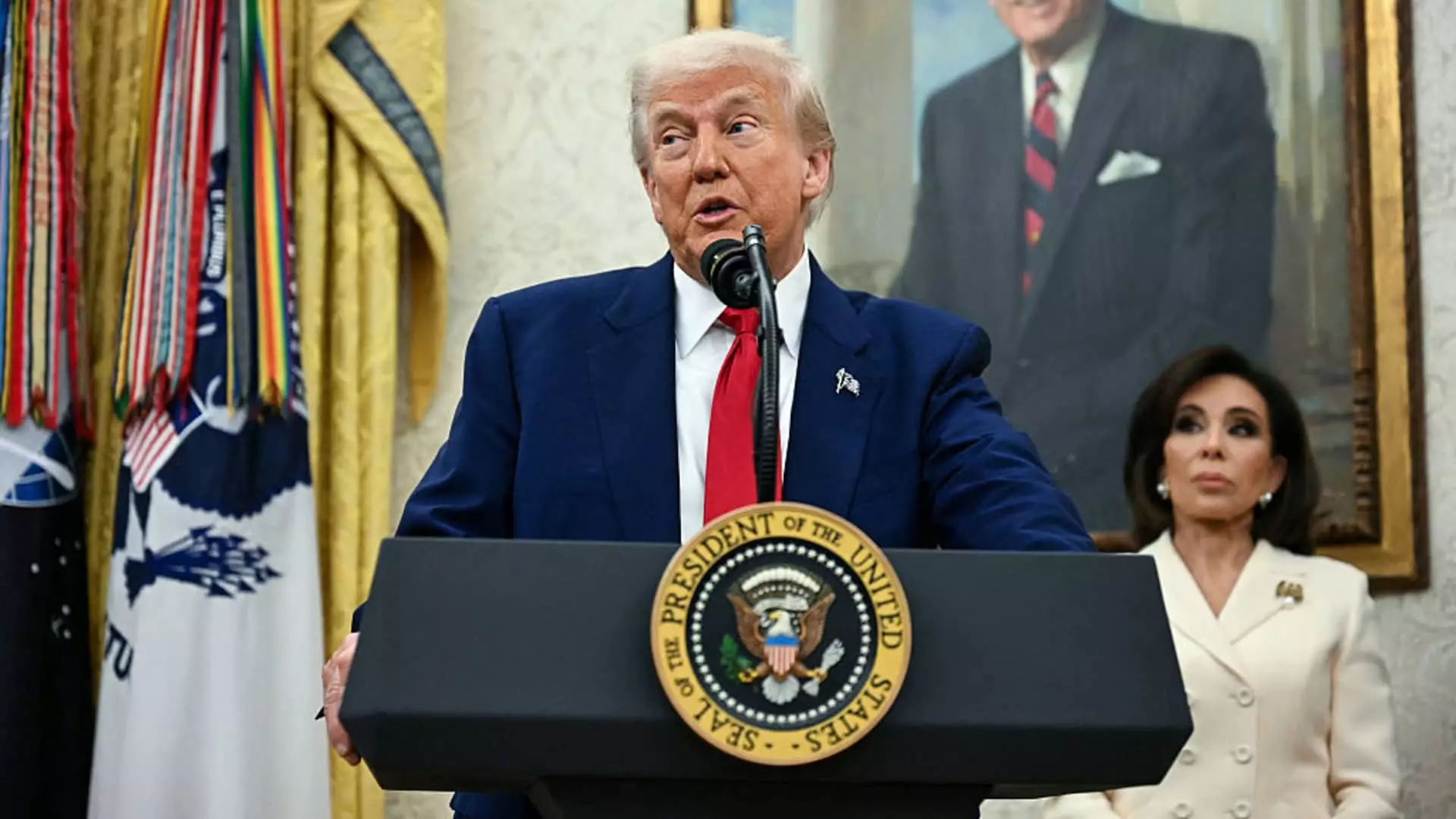President Donald Trump’s approach to tariffs can best be described as a bizarre rollercoaster, and a recent moniker coined by Financial Times columnist succinctly encapsulates this chaos: the “TACO trade,” which humorously stands for “Trump Always Chickens Out.” This characterization may seem simplistic, but it reveals a troubling truth about the erratic nature of his trade policies. With his frequent threats of imposing heavy tariffs followed by hasty backpedaling, Trump not only undermines market stability but also cultivates a climate of uncertainty that is damaging to both American businesses and the economy as a whole.
When Trump tweeted threats of tariffs, stock markets often reacted negatively, reflecting the apprehension that reverberates through global trade. Just recently, he threatened the EU with a staggering 50% tariff, only to offer a reprieve days later after European Commission President Ursula von der Leyen expressed a desire for dialogue. This kind of behavior presents an unsettling portrait of a leader seemingly more interested in negotiating bravado than coherent economic strategy. Rather than being a master negotiator, Trump appears to be a gambler, making high-stakes bets in a game that can crash at any moment.
Negotiation or Dithering?
Trump’s defense of his tactics as “negotiation” is a telling indictment of his administration’s methodology. Real negotiation requires a consistent strategy backed by well-considered policy decisions. However, sending markets into turmoil with threats of escalated trade wars only to soften those threats reflects an alarming level of inconsistency. If this is the new norm, what message does it send to American businesses? The vibe is one of instability, where companies must adapt to a fluctuating landscape without the benefit of clear direction.
The chaotic back-and-forth on tariffs also underscores a significant failure to engender confidence amongst investors. After the initial chaotic announcement that included punitive tariffs against nearly every country, a panicky market responded with a plunge. Trump’s arbitrary rollback to a lower rate after sparking market turmoil may have temporarily appeased investors, but it further begs the question: how can businesses plan for the future when they are constantly dealing with a moving target?
The Broader Impact on International Relations
Moreover, Trump’s impulsive tariff escalation has ripple effects far beyond Wall Street. These tactics damage U.S. credibility on the international stage. Other countries observing the erratic demands might question any agreements they reach with the Trump administration, fearing the promises may vanish as abruptly as they appeared. Trade is a foundational pillar of international relations, and by resorting to bombastic gimmicks rather than serious dialogue, the U.S. runs the risk of alienating trading partners who might view such unpredictability as a sign of weakness.
In a climate where stability is paramount for sustainable economic growth, Trump’s erratic tariff play not only distances the U.S. from developing fruitful partnerships but may also awaken previously dormant economic rivalries. The sentiment behind trade strategies should be to foster long-lasting relationships built on trust and mutual benefit, rather than perpetuating cycles of fear.
Ultimately, the “TACO trade” is not just an amusing label but a reflection of a deeply flawed economic philosophy marked by impulsivity and inconsistency. As we continue to navigate this turbulent economic landscape, it is critical to advocate for a more stable and reliable approach to trade that prioritizes the long-term welfare of the American economy and its place in the global market.

